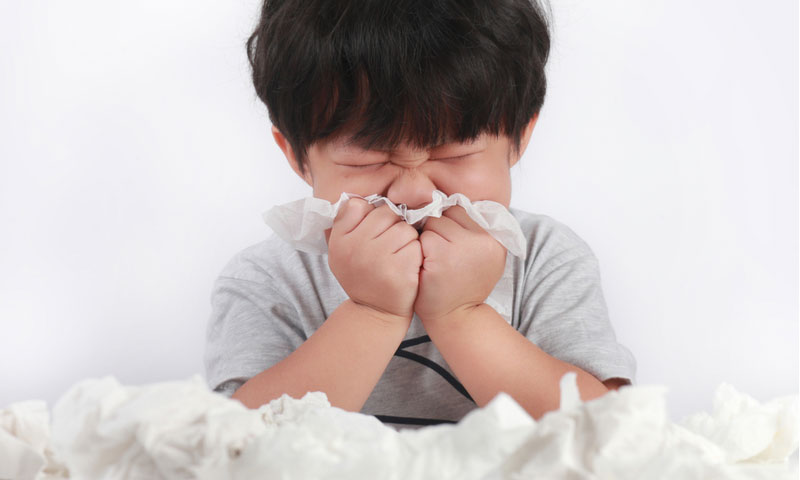"The Dos and Don'ts of Managing Your Child's Allergies"
Managing their condition can be overwhelming and daunting if you’re a parent of a child with allergies. Don’t worry—you’ve got this! With the right strategies in place, you can confidently navigate everyday worries while offering your little one lots of love, support, and emotional security. We know how important it is for you always to ensure your child’s safety, so this blog post will arm you with vital information about the dos and don’ts of managing your child’s allergies. From understanding possible reactions to recognizing dangerous situations or avoiding cross-contamination in shared environments, together, we’ll cover essential steps that can help make life with allergies a whole lot easier.

Do understand your child's allergies - knowing the exact triggers and how to avoid them is essential.

Allergies can be a source of significant discomfort and distress for your child. It’s essential, as a parent, to understand your child’s specific allergies, the triggers that set off the allergy, and how you can help your child avoid it. Knowledge is power; familiarize yourself with the symptoms associated with your child’s allergies, so you can detect them quickly if activated. Learn which environmental changes need to be in place, such as avoiding certain kinds of food – and become adept at reading labels on packaged food. A good step is to keep an allergy journal for your child; this will give you greater insight into the exact reaction and the conditions that caused it. These simple steps will ensure you keep your children safe from their potential irritants and get one step closer to complete control over their allergic reactions.
Take action before an allergy attack occurs - be proactive in preventing flare-ups.
Be proactive and protect yourself when the moment arrives! Spring is here, and many of us are enjoying the return of warm, sunny weather. Unfortunately for those with allergies, it can bring many irritating symptoms like watery eyes and sneezing. Taking preventative measures to decrease your risk of an allergy attack is critical in keeping flare-ups at bay. For example, wear sunglasses to reduce irritation from eye-allergy triggers such as ragweed pollen or wear an N95 filtering facemask when mowing the lawn to minimize dust irritants entering your nose and lungs. Having an action plan in case of reaction is also essential; effects can be decreased with the use of antihistamines and through avoiding contact with identified triggers if possible. Try This Pollen Tracking APP

Do read labels carefully when shopping for food and other products.

Shopping is an everyday activity that most of us must do, but it is essential to remember that there are certain things we need to pay attention to. When purchasing food and other products, one of the critical aspects to consider is reading the labels on them. Brands provide excellent information about what you’re buying and can be incredibly valuable when making health or purchasing decisions. Check for ingredients that might cause allergies, look up nutrition facts, quality certification symbols, and expiry dates – all these factors could make a tremendous difference when acquiring safe and reliable products. It almost always pays to read product labels carefully! Doing so would ensure you stay informed about what you’re consuming or using in your day-to-day life.
Don't ignore the symptoms of an allergy attack - seek medical treatment if necessary.
Allergies can be mild to life-threatening, so it’s essential not to take the signs and symptoms of an allergy attack lightly. It’s best to seek medical care if any symptoms arise, ranging from a runny nose or itchy eyes to wheezing or hives. Identifying the symptoms is especially important if you are experiencing swelling, difficulty breathing, or chest tightness, as this could indicate anaphylaxis – a potentially fatal reaction. Without proper medical treatment, mild allergy symptoms may worsen — resulting in prolonged suffering and potential future health complications. Your physician will be able to properly assess the severity of your allergy attack and determine the most effective way to provide relief.

Do keep a diary to track your child's reactions and improvement over time.
Keeping a diary to track your child’s progress over time can be invaluable in understanding their problems and learning how best to support them. Having this extra insight into the changes they experience, both positive and negative, can provide critical context that would otherwise be lost. A diary can help you take a step back on difficult days when emotions run high, allowing you to gain clarity before ultimately acting. Read up on the 5 Best Apps to Manage Allergies. It is also vital to keep track of milestones and achievements as this will enable parents to remain focused on the more extensive journey of their children’s development.
Don't hesitate to ask for help from friends, family, or medical professionals.
Life can be difficult sometimes, and it’s essential to understand that asking for help is necessary to keep a healthy balance. Whether it be from friends or family, from whom you can seek emotional support, or from medical professionals who could provide you with the specialized advice needed – don’t hesitate to reach out. Taking the first step and seeking help from others will positively impact your overall well-being by bringing clarity to whatever troubling situation you face. Everyone needs a bit of extra guidance at times, and it often leads to outstanding outcomes!
All in all, allergies can be a complex and severe health issue. Thankfully, with the right resources and attitude, it’s possible to navigate and manage the dangers of allergies appropriately. Understanding your child’s allergies is vital for prevention and treatment, so recognize the signs and triggers as soon as possible. Don’t forget that keeping track of your children’s symptoms and improvement over time is also invaluable. If you feel overwhelmed with managing your child’s allergies, don’t be afraid to ask family or medical professionals for assistance. Above all else, take the necessary steps to ensure your child is safe and healthy by being proactive in prevention approaches and treatments.




